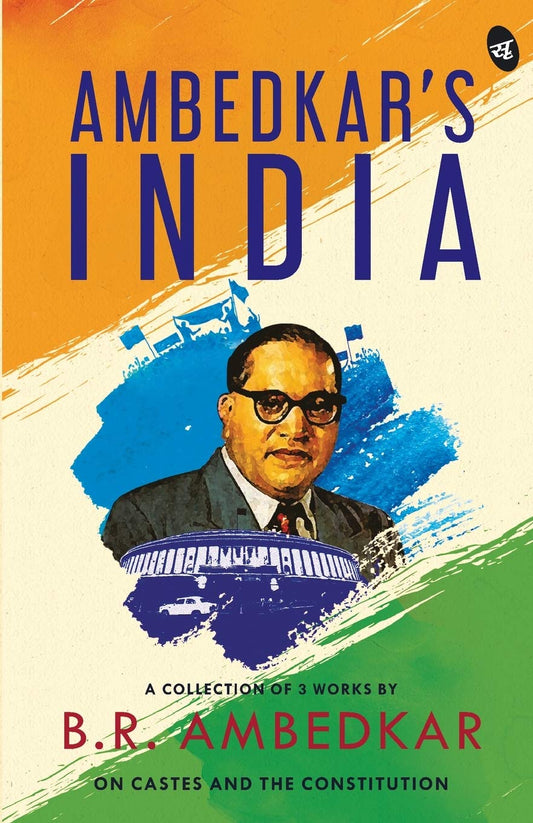Did you know that 74% of avid readers experience periods where they completely lose interest in reading? If you're staring at your bookshelf feeling disconnected from the hobby you once loved, you're not alone. That stack of unread books isn't a judgment of your character—it's a common experience that affects readers of all ages and backgrounds.
Many book lovers find themselves in reading slumps where opening a book feels like a chore rather than a pleasure. The stories that once transported you to different worlds now feel flat and unengaging. This reading burnout can be frustrating, especially when you remember how much joy books used to bring to your life.
In this comprehensive guide, you'll discover the root causes of reading disinterest, practical strategies to reignite your passion for books, and actionable steps to rebuild a sustainable reading habit. Whether you've been away from books for weeks or years, these proven techniques will help you rediscover the magic of reading and create a lifelong love affair with literature.
What Is Lost Interest in Reading?
Lost interest in reading refers to a psychological state where previously enthusiastic readers find themselves unable or unwilling to engage with books. This condition often called a reading slump, manifests as a persistent lack of motivation to pick up books, difficulty concentrating on text, or feeling overwhelmed by the prospect of reading.
Unlike temporary busy periods where you simply don't have time to read, reading apathy involves an emotional disconnection from the activity itself. You might find yourself scrolling through social media instead of reading, feeling guilty about unfinished books, or experiencing anxiety when looking at your book collection.
This phenomenon affects readers differently depending on their reading history, current life circumstances, and personal preferences. Some people experience reading burnout after consuming too many books in a short period, while others develop book aversion due to negative associations with forced reading during school years.
Reading motivation loss can be temporary, lasting a few weeks, or extended for months or even years. The key distinction is that this isn't about reading ability—you can still read—but rather about the desire and enjoyment that once made reading a cherished activity.
Understanding that reading disinterest is a normal part of many readers' journeys helps remove the shame and guilt often associated with this experience. Recognizing this state as temporary and addressable is the first step toward rebuilding your relationship with books.
How Does Reading Disinterest Develop?
The development of reading motivation decline typically follows predictable patterns that help explain why once-passionate readers suddenly find themselves disconnected from books.
Lifestyle Changes Impact: Major life transitions such as starting a new job, moving to a different city, becoming a parent, or experiencing relationship changes can disrupt established reading routines. When your daily structure changes dramatically, reading habits often become casualties of the adjustment period.
Digital Overstimulation Effects: Constant exposure to social media, streaming services, and digital entertainment has rewired many brains for instant gratification. The sustained attention required for book engagement can feel unnaturally slow compared to the rapid-fire content consumption patterns we've developed.
Stress and Mental Health Factors: Anxiety, depression, and chronic stress significantly impact concentration and pleasure-seeking behaviors. When your mind is preoccupied with worries or you're experiencing a low mood, the cognitive effort required for reading can feel overwhelming rather than relaxing.
Academic Reading Trauma: Negative experiences with required reading in school or college can create lasting associations between books and stress. Many people develop reading anxiety after years of analyzing literature for grades rather than enjoyment, making recreational reading feel like work.
Social Pressure and Comparison: Social media and book communities sometimes create pressure to read certain types of books, maintain specific reading speeds, or achieve particular reading goals. This external pressure can transform reading from a personal pleasure into a performance metric, leading to reading resistance.
Genre Fatigue and Narrow Reading: Sticking to one genre or author for extended periods can lead to boredom and predictability. When stories start feeling repetitive or familiar, readers often mistake this genre fatigue for overall reading disinterest.
Types of Reading Slumps
Understanding different categories of reading motivation problems helps you identify your specific situation and choose appropriate recovery strategies.
Temporary Reading Slumps
These short-term reading blocks typically last 2-8 weeks and often coincide with busy periods, seasonal changes, or minor life stressors. You still feel positive about reading but simply can't find the time or energy to engage with books consistently.
Chronic Reading Avoidance
Long-term reading disinterest persists for months or years and often stems from deeper issues like trauma, depression, or fundamental changes in interests and values. This type requires more intensive intervention and patience to overcome.
Genre-Specific Reading Fatigue
Some readers experience selective reading aversion where they lose interest in particular genres while maintaining enthusiasm for others. Romance readers might suddenly find love stories boring, or fantasy enthusiasts might crave realistic fiction instead.
Performance-Based Reading Anxiety
This type develops when reading becomes associated with external pressures like book club discussions, social media reviews, or academic requirements. The reading pressure transforms books from entertainment into obligations.
Overwhelm-Induced Reading Paralysis
When faced with too many book choices, recommendations, or unread books, some readers experience decision paralysis that prevents them from starting anything. The abundance of options becomes paralyzing rather than exciting.
Comparison-Driven Reading Shame
Seeing others' reading accomplishments on social media or in book communities can trigger feelings of inadequacy about your reading habits, leading to reading insecurity and avoidance behaviors.
Why Overcoming Reading Disinterest Matters
Addressing lost interest in reading extends far beyond simply resuming a hobby—it impacts multiple aspects of your cognitive, emotional, and social well-being.
Cognitive Benefits Recovery: Reading regularly improves vocabulary, comprehension skills, and critical thinking abilities. When you restore reading motivation, you're investing in your brain's long-term health and cognitive flexibility. Studies show that readers maintain better memory and analytical skills as they age.
Emotional Regulation Improvement: Books provide emotional processing opportunities and stress relief that many readers desperately miss during slumps. Reading enjoyment recovery restores access to these therapeutic benefits, helping you manage emotions and find healthy escapism.
Enhanced Empathy and Perspective: Fiction reading particularly develops empathy by exposing you to diverse characters and situations. Overcoming reading apathy reopens these windows into different experiences and worldviews, making you more understanding and socially aware.
Personal Growth Opportunities: Both fiction and non-fiction books offer chances for self-reflection, learning, and personal development. When you rediscover your reading passion, you regain access to countless mentors, ideas, and growth opportunities that books provide.
Social Connection Benefits: Reading communities, book clubs, and literary discussions provide meaningful social connections. Overcoming reading disinterest allows you to reconnect with these communities and form relationships based on shared intellectual interests.
Identity and Purpose Restoration: For many people, being a "reader" is an important part of their identity. Reading motivation restoration helps you reconnect with this aspect of yourself and the sense of purpose that comes from engaging with literature and ideas.
Behind the Scenes: Psychology of Reading Motivation
Understanding the psychological mechanisms behind reading engagement helps explain why interest fluctuates and how to strategically rebuild motivation.
Dopamine and Reward Systems: Reading triggers dopamine release when you discover compelling characters, plot twists, or new ideas. However, reading burnout can disrupt these reward pathways, making books feel less rewarding than other activities. Understanding this helps you choose books that are more likely to re-engage your brain's reward system.
Attention and Flow States: Successful reading requires entering a "flow state"—a psychological condition of complete absorption in an activity. Modern life's constant interruptions and multitasking demands can damage your ability to achieve this state, making reading feel fragmented and unsatisfying.
Habit Formation and Neural Pathways: Regular reading creates neural pathways that make the activity feel natural and automatic. When you lose reading momentum, these pathways weaken, making reading feel more effortful than it used to be. Rebuilding these pathways requires consistent, gentle practice.
Autonomy and Intrinsic Motivation: Reading motivation thrives on personal choice and intrinsic interest. External pressures like reading challenges, social expectations, or academic requirements can undermine this autonomy, leading to reading resistance even when you want to enjoy books.
Cognitive Load and Mental Energy: Reading requires significant mental energy, particularly for complex or challenging texts. During stressful periods or when experiencing mental health challenges, your cognitive resources may be depleted, making reading feel overwhelming rather than enjoyable.
Social and Cultural Influences: Your reading motivation is influenced by social connections, cultural messages about reading, and personal reading history. Negative experiences or cultural messages that frame reading as "work" can create subconscious resistance to picking up books.
Benefits of Rekindling Your Reading Passion
Overcoming reading disinterest provides immediate and long-term advantages that extend well beyond entertainment value.
Improved Sleep Quality: Many readers find that reading habit restoration improves their sleep patterns. Reading before bed provides a healthy alternative to screen time and helps your mind transition from daily stresses to restful sleep.
Enhanced Focus and Concentration: Regular reading rebuilds your attention span and concentration abilities. As you rebuild reading motivation, you'll notice improved focus in other areas of life, from work projects to personal conversations.
Stress Reduction and Mental Health: Reading provides proven stress relief and mental health benefits. Reading passion recovery gives you access to healthy coping mechanisms and emotional regulation tools that books uniquely provide.
Expanded Knowledge and Perspectives: Books expose you to new ideas, cultures, and ways of thinking. When you rediscover reading joy, you reopen pathways to continuous learning and intellectual growth that can enhance your career and personal relationships.
Stronger Vocabulary and Communication Skills: Regular reading naturally improves your vocabulary and communication abilities. Reading motivation restoration helps you become a more articulate and confident communicator in both personal and professional settings.
Increased Empathy and Social Intelligence: Fiction reading particularly develops empathy and social understanding. Overcoming reading apathy helps you become more emotionally intelligent and better at understanding others' perspectives and motivations.
Proven Strategies to Overcome Reading Disinterest
These actionable techniques address different aspects of reading motivation loss and provide concrete steps to rebuild your relationship with books.
Start with Comfort Reading
Return to books that previously brought you joy rather than challenging yourself with difficult or trendy titles. Comfort reading might include re-reading favorite childhood books, exploring familiar genres, or choosing light, entertaining stories that don't require intense concentration.
Choose books that feel like "literary comfort food"—stories that are engaging but not emotionally or intellectually demanding. This approach helps rebuild positive associations with reading without adding performance pressure.
Implement the 10-Minute Rule.
Commit to reading for just 10 minutes daily without any pressure to continue longer. This micro-reading habit helps rebuild reading neural pathways without feeling overwhelmed. Often, you'll find yourself reading longer naturally, but the low commitment reduces resistance.
Set a timer and permit yourself to stop when it rings. This approach removes the pressure of finishing chapters or reaching specific goals, making reading feel manageable rather than daunting.
Diversify Your Reading Format
Experiment with different reading formats to find what feels most engaging. Audiobooks can be excellent for people struggling with visual concentration, while graphic novels combine visual and textual elements that might re-engage your interest.
E-readers offer features like adjustable font sizes and built-in dictionaries that can make reading feel more accessible. Physical books provide tactile experiences that some readers find more engaging than digital formats.
Create a Reading-Friendly Environment
Design a specific space dedicated to reading that feels comfortable and inviting. This reading sanctuary should be free from digital distractions and associated with relaxation rather than productivity.
Consider factors like lighting, seating comfort, temperature, and noise levels. Having a dedicated reading space signals to your brain that it's time to focus and can help trigger reading motivation more easily.
Join Reading Communities
Connect with other readers through book clubs, online communities, or social media groups focused on reading. Reading accountability and social support can provide motivation and reduce the isolation that often accompanies reading slumps.
Share your reading goals and challenges with supportive communities. Often, discovering that others have similar experiences reduces shame and encourages me to continue working on reading motivation recovery.
Practice Reading Mindfulness
Approach reading with mindful awareness rather than goal-oriented pressure. Focus on the sensory experience of reading—the feel of pages, the rhythm of words, or the narrator's voice in audiobooks. This mindful reading approach can help you reconnect with the pleasure aspects of reading.
Pay attention to your emotional responses to different books and genres without judgment. Notice what captures your interest and what feels forced, using this awareness to guide your reading choices.
Set Realistic Reading Goals
Establish achievable reading goals that focus on consistency rather than quantity. Sustainable reading habits develop through regular, modest practice rather than ambitious targets that create pressure and potential failure.
Consider goals like "read for 15 minutes daily" or "finish one book per month" rather than "read 50 books this year." Success with smaller goals builds confidence and motivation for continued reading.
Final Thoughts
Lost interest in reading is a common experience that doesn't reflect your intelligence, character, or worth as a person. Like any relationship, your connection with books can go through phases of distance and reconnection. The key is approaching this challenge with patience, self-compassion, and practical strategies.
Remember that reading motivation recovery is a gradual process that requires experimentation and flexibility. What works for one person might not work for you, and that's perfectly normal. The goal isn't to return to the same reading habits you had before but to develop a new, sustainable relationship with books that fits your current life circumstances.
Your reading journey is unique, and there's no timeline for overcoming reading disinterest. Some people rediscover their love for books within weeks, while others take months or even years to fully reconnect. Both paths are valid, and both deserve celebration when progress occurs.
Start with small, manageable steps and be patient with yourself as you rebuild this important relationship. The books will be waiting for you when you're ready, and the joy of reading can be rediscovered at any stage of life.
Lost Interest in Reading FAQ's
How long does it typically take to overcome lost interest in reading?
The timeline varies greatly depending on the underlying causes and individual circumstances. Some people rediscover their reading passion within a few weeks of implementing new strategies, while others may take several months or longer. The key is consistency and patience rather than rushing the process.
Is it normal to lose interest in reading as an adult?
Absolutely. Many adults experience reading slumps due to increased responsibilities, stress, digital distractions, or life changes. This is a normal part of the reading journey and doesn't indicate anything wrong with you or your intelligence.
Should I force myself to read even when I don't feel like it?
Gentle encouragement is helpful, but forcing yourself to read can create negative associations with books. Instead, try micro-reading sessions, different formats, or easier books. The goal is to rebuild positive associations rather than create additional pressure.
Can listening to audiobooks help overcome reading disinterest?
Yes, audiobooks are an excellent tool for overcoming reading slumps. They can be easier to focus on than visual reading, allow multitasking, and provide engaging narration that might reignite your interest in stories. Many people find audiobooks serve as a bridge back to traditional reading.
What if I start a book but can't finish it during my reading slump?
This is completely normal and nothing to feel guilty about. Permit yourself to abandon books that aren't working for you. During reading slumps, it's better to find books that engage you rather than forcing yourself through unsuitable material.
How do I choose books when I've lost interest in reading?
Start with books that previously brought you joy, explore lighter genres, consider shorter books, or ask for recommendations from trusted friends. Avoid books that feel like obligations or that you think you "should" read. Focus on what genuinely interests you, even if it seems "too easy" or different from your usual preferences.









